MercoPress. South Atlantic News Agency
Stories for November 26th 2012
-
Monday, November 26th 2012 - 23:32 UTC
Brazil’s largest city replaces all chiefs of police to contain an escalating wave of killings
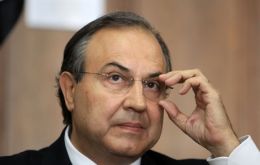
The chiefs of police in Sao Paulo were replaced on Monday as Brazil's largest city emerged from a bloody weekend and authorities struggled to contain a wave of violence that has doubled the murder rate in recent months.
-
Monday, November 26th 2012 - 23:18 UTC
Spain rejects talks offer from ETA and demands dissolution without conditions
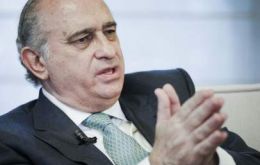
Spain's government rejected an offer of talks from armed Basque separatists ETA and demanded the group dissolve itself without conditions, after ETA called for negotiations on prisoners and a weapons handover.
-
Monday, November 26th 2012 - 22:57 UTC
Bolivian plans to belong to CAN and Mercosur face several hurdles
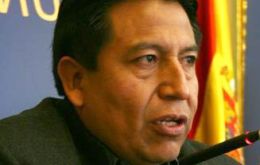
Foreign minister David Choquehuanca argued that Bolivia can become a full member of Mercosur and continue with the Community of Andean Nations, CAN, and can’t be forced to abandon a block to join another.
-
Monday, November 26th 2012 - 22:11 UTC
“Milk bath” for European Parliament as farmers protest low prices
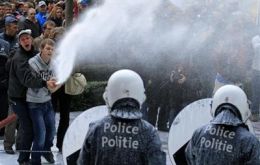
Dairy farmers sprayed thousands of litres of fresh milk at the European Parliament in Brussels on Monday in protest at what they say are excessive milk quotas and prices below the cost of production.
-
Monday, November 26th 2012 - 21:41 UTC
UK appeals to EU, WTO and IMO over latest Argentine ‘intimidation’ round on the Falklands
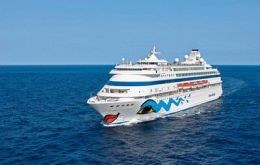
The UK is pursuing actions through the European Union, the World Trade Organization and the International Maritime Organization following the latest intimidation incidents from Argentina against the Falkland Islands and which also involve interfering with the free passage of shipping and free trade.
-
Monday, November 26th 2012 - 20:00 UTC
UK to consolidate three major complex warships’ manufacturing yards

One of BAE Systems' major shipyards could be closed, the company's UK chief, Nigel Whitehead, has said. He told the Sunday Telegraph a decision would be made by the end of the year.
-
Monday, November 26th 2012 - 19:54 UTC
“Fuleco” will rule over the 2014 Brazil World Cup

FIFA has named the mascot for the 2014 Brazil World Cup “Fuleco,” a word which organisers say transmits a message of environmental awareness, Football plus ecology.
-
Monday, November 26th 2012 - 19:35 UTC
The Chicago Tribune on the bonds dispute: ‘Cry for yourself, Argentina’

The Chicago Tribune, one of the leading Midwest US newspapers has been following closely the dispute in New York courts between the Argentine government and investment funds that are demanding full payment of sovereign bonds.
-
Monday, November 26th 2012 - 19:04 UTC
Canadian considered G7 best central banker to lead Bank of England for next five years

Mark Carney has been named as the new Bank of England governor, who will replace outgoing head Sir Mervyn King. The role of the governor is the most important unelected position in Britain, and is chosen by the British Government.
-
Monday, November 26th 2012 - 18:46 UTC
Argentina organizing major diplomatic Falklands “anti-referendum” campaign
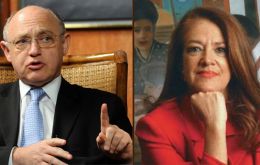
Argentina has started a major diplomatic campaign in an attempt to deny success to the Falkland Islands March referendum on its nationals’ political status, fearing the negative international repercussions for its sovereignty claims over the disputed Islands.
